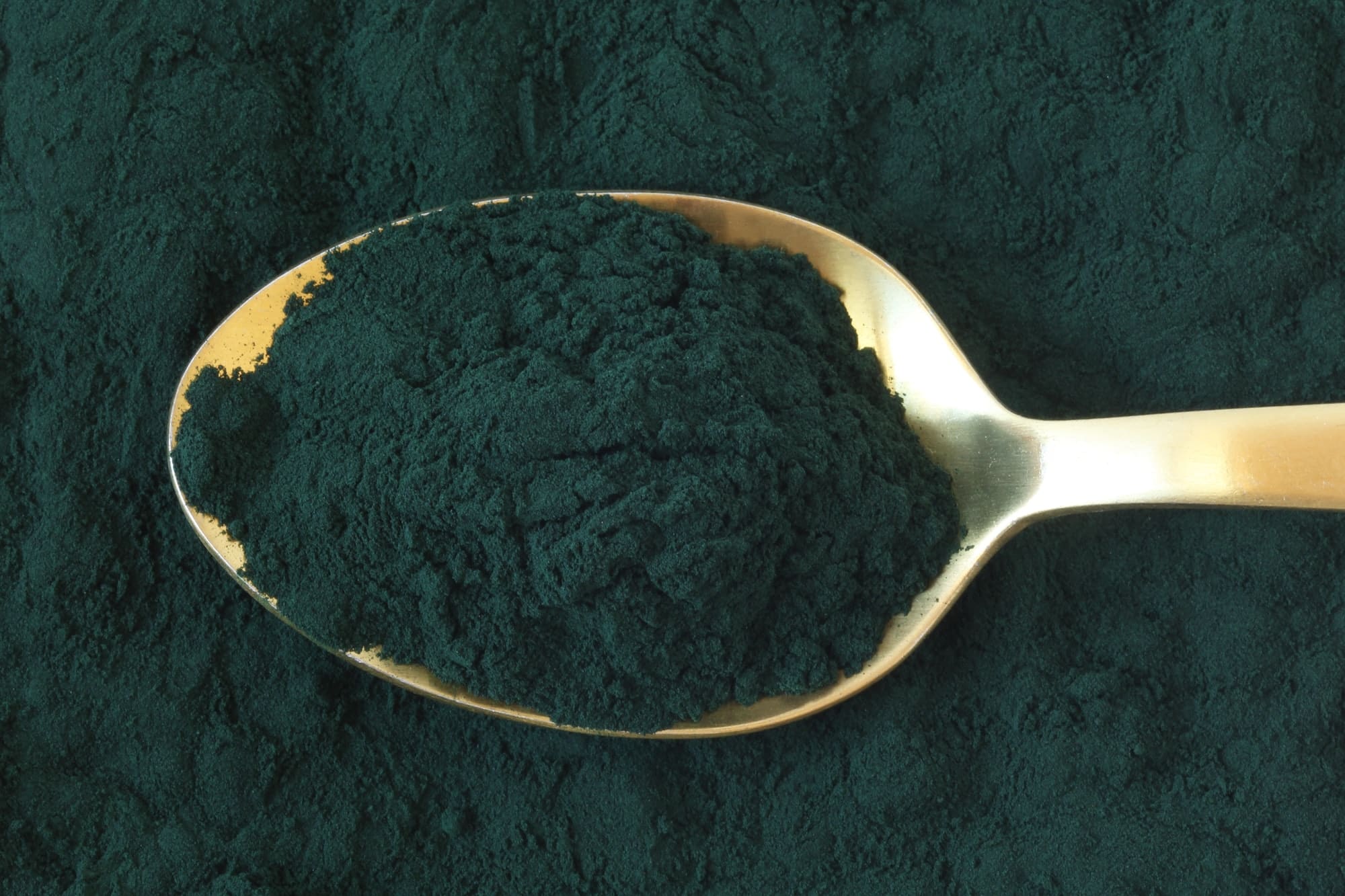Can Incorporating Spirulina into Your Diet Improve Nutrient Absorption?

As you embark on your quest for a healthier lifestyle, you may have heard of the superfood known as spirulina. This blue-green algae, known scientifically as Arthrospira platensis, has taken the health food scene by storm, with Google scholar studies and health gurus touting its myriad benefits. But beyond the hype, does incorporating spirulina into your diet really improve nutrient absorption? Let’s delve into the science to find out.
What is Spirulina?
Before we delve into the potential benefits of Spirulina, let’s clarify what it is. Spirulina, also referred to as Arthrospira platensis is a type of blue-green algae, which is not only packed with highly nutritious compounds but also has a high protein and vitamin content. Available in powder form, it can be easily incorporated into your meals or taken as a supplement.
Also read : Discover orthopaedic solutions for optimum comfort
Spirulina is often referred to as a "superfood" due to its nutrient dense profile. It’s high in protein, vitamins B1, B2 and B3, copper and iron. Furthermore, it’s one of the few plant sources of vitamin B12, which is essential for nerve function.
Potential Health Benefits of Spirulina
Over recent years, numerous scientific studies have been conducted on Spirulina, exploring its various potential health benefits. Most notably, these include weight management, cholesterol reduction, and boosting overall health levels.
Topic to read : How Can School-Based Nutrition Education Influence Children’s Eating Habits at Home?
Spirulina is high in protein, which can help control your appetite and promote weight loss by keeping you feeling full for longer. In addition, the high level of antioxidants in spirulina can reduce inflammation, which is often linked to obesity and other health problems.
An interesting study published on Google scholar highlights the potential role of Spirulina in reducing cholesterol levels. High cholesterol is a risk factor for heart disease, so the ability of Spirulina to potentially reduce these levels could be a significant benefit for heart health.
Spirulina and Nutrient Absorption
One of the most celebrated benefits of Spirulina is its potential to enhance nutrient absorption. Nutrient absorption refers to the process by which your body takes in and utilizes the nutrients from your food.
Given that Spirulina powder is so densely packed with nutrients, it’s no surprise that it can enhance your nutrient absorption. This is due to its high content of bioavailable nutrients, meaning they are in a form that your body can easily absorb and utilize.
Studies indicate that the protein in Spirulina, for example, is more digestible than that found in most other food sources. This means that your body can more easily break down and absorb the protein in Spirulina, boosting your protein intake.
Furthermore, Spirulina is rich in chlorophyll, a compound that aids in the detoxification of the blood and boosts oxygen levels. This, in turn, can enhance your nutrient absorption, as healthier blood can more efficiently transport nutrients throughout your body.
Spirulina: Side Effects and Considerations
While Spirulina has many potential benefits, it’s also important to consider potential side effects. Like any food or supplement, it may not be suitable for everyone and should be consumed as part of a balanced diet.
Some people may experience mild side effects such as nausea, diarrhea, or headaches when first incorporating Spirulina into their diet. These effects typically subside as your body adjusts to the new food.
It’s also worth noting that Spirulina is a powerful detoxifier, which means it could potentially cause a Herxheimer reaction. This is a short-term response to your body detoxifying, and can cause flu-like symptoms in some people.
While Spirulina has a high protein content, it’s worth noting that most of its protein is in the form of non-essential amino acids. This means that although the protein is more digestible, it may not provide all the essential amino acids your body needs. Therefore, it should not be relied upon as the sole source of dietary protein.
In conclusion, Spirulina offers a variety of potential health benefits, including enhanced nutrient absorption. However, it’s important to incorporate it into a balanced diet and to be mindful of potential side effects. Always consult with a healthcare professional before adding any new supplement to your diet.
Exploring the Science Behind Spirulina’s Health Benefits
To solidify our understanding of why spirulina has been labelled a ‘superfood’, let’s delve into the research surrounding it. Numerous studies available on Google Scholar shed light on the health benefits of spirulina, focusing on its impact on blood pressure, weight loss, type 2 diabetes, and the immune system.
The hypertensive properties of spirulina can be attributed to its high content of gamma-linolenic acid (GLA), a type of omega-6 fatty acid. GLA has been found to support heart health by helping to regulate blood pressure. This implies that incorporating spirulina into your diet could potentially manage blood pressure levels.
Spirulina’s influence on weight loss can be credited to its protein content. A nutrient-dense source of protein, spirulina aids in maintaining satiety. Feeling full for extended periods can assist in curbing the urge to snack, supporting weight management goals.
Researchers are also intrigued by spirulina’s potential benefits for type 2 diabetes. Studies suggest that spirulina may help regulate blood sugar levels, with some indicating that spirulina extract has the potential to act as a natural antidiabetic agent. However, more comprehensive clinical trials are needed to confirm these findings.
Lastly, spirulina’s benefits extend to strengthening the immune system. It is rich in antioxidants that help combat oxidative stress, potentially boosting our overall immunity. These findings suggest that spirulina could be an effective supplement for promoting health and wellness.
Fresh Spirulina vs. Spirulina Powder: Which is Better?
Spirulina comes in various forms, such as fresh spirulina and spirulina powder, which cater to different dietary needs and preferences. But is one form better than the other?
Fresh spirulina is often sold in health food stores in its raw, liquid form. It has a mild, slightly sweet taste that makes it easy to incorporate into smoothies or juices. Fresh spirulina is highly perishable and needs to be refrigerated, making it less convenient for some people.
Spirulina powder, on the other hand, is a more processed product. It is dried and ground into a fine powder that is easy to add to a variety of dishes, from smoothies to baked goods. The processing does not significantly impact the nutrient content, making it a viable alternative to fresh spirulina.
The choice between fresh spirulina and spirulina powder ultimately comes down to personal preference and lifestyle. Both forms provide the same range of health benefits, so it’s about finding what works best for you.
Final Verdict
The potential health benefits of spirulina are impressive, ranging from supporting weight loss to aiding in blood pressure regulation. Its high nutrient density and bioavailability make it an excellent food supplement for enhancing nutrient absorption. However, it’s also important to remember that spirulina, whether fresh or in powder form, should be consumed as part of a balanced diet.
While spirulina is generally safe, some people may experience side effects. Always consult a healthcare professional before introducing spirulina or any new supplement into your diet. Stay informed, stay healthy, and let nature’s superfoods like spirulina help you achieve your health goals.
